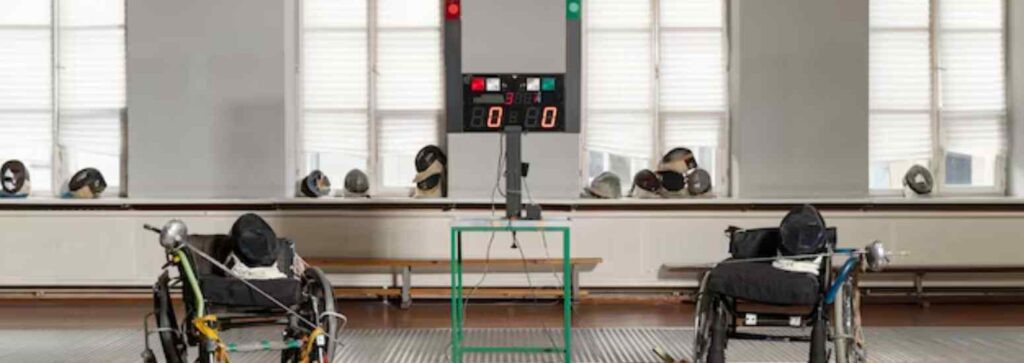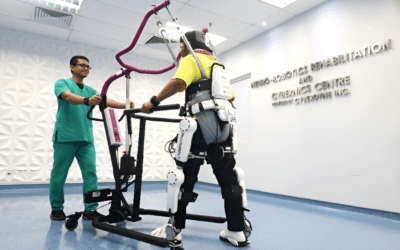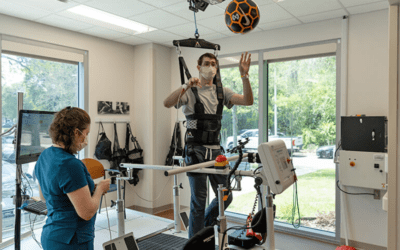A widely used medication is changing the landscape of Multiple Sclerosis (MS) treatment by offering new hope for patients. This therapy alleviates symptoms and targets the underlying disease mechanisms, potentially slowing disease progression. As a result, it enhances the quality of life for many and shifts the focus from managing symptoms to more proactive disease management strategies. This advancement represents a significant step forward in MS care.
Multiple Sclerosis (MS) is a chronic autoimmune disease that affects the central nervous system (CNS), which includes the brain and spinal cord. In MS, the immune system mistakenly attacks the protective covering of nerve fibers, known as myelin, leading to inflammation and damage. This disrupts communication between the brain and the rest of the body.

Symptoms of Multiple Sclerosis
- Fatigue: A common and often debilitating symptom.
- Numbness or Tingling: Usually in the limbs.
- Muscle Weakness: Difficulty in movement and coordination.
- Vision Problems: Blurred or double vision, or even temporary loss of vision.
- Cognitive Changes: Issues with memory, attention, and problem-solving.
- Balance and Coordination Issues: Difficulty walking or maintaining stability.
Types of Multiple Sclerosis and Disease Progression
Relapsing-Remitting Multiple Sclerosis (RRMS)
Characterized by episodes of worsening symptoms (relapses) followed by periods of recovery (remissions).
Secondary Progressive MS (SPMS)
Initially begins as RRMS but gradually transitions to a progressive course with fewer relapses and more steady worsening.
Primary Progressive Multiple Sclerosis (PPMS)
Marked by a gradual worsening of symptoms from the onset, without distinct relapses or remissions.
Progressive-Relapsing MS (PRMS)
A rare form that has a progressive course from the start but includes occasional relapses.
Complications of Multiple Sclerosis
Complications from MS can be extensive and may include:
- Mobility Issues: Progressive weakness can lead to difficulty walking or using limbs.
- Bladder and Bowel Dysfunction: Many individuals experience urgency, incontinence, or constipation.
- Cognitive Impairments: Memory issues, difficulty concentrating, and slower information processing can occur.
- Emotional Changes: Depression and anxiety are common, and often linked to the chronic nature of the disease.
- Secondary Conditions: Due to immobility, individuals may face complications like pressure sores, infections, or osteoporosis.
Management
While there is no cure for MS, treatment focuses on managing symptoms, modifying the disease course, and improving quality of life. This can involve medications, physical therapy, lifestyle changes, and support from healthcare professionals. Early diagnosis and intervention are crucial for better outcomes.
Revolution in Multiple Sclerosis Treatment –
FTY720 has marked a shift in MS therapy by:
- Changing Treatment Paradigms: The focus has shifted from purely symptomatic treatment to a more proactive approach in managing disease progression.
- Offering an Alternative: For patients who may not respond to or tolerate traditional therapies, FTY720 provides a valuable option.
- Enhancing Research: Its success has spurred further research into S1P receptor modulators and similar therapies, paving the way for new treatments.
Treatment of multiple sclerosis with FTY720

FTY720 (Fingolimod) is an oral medication used in the treatment of multiple sclerosis (MS), particularly effective for relapsing forms of the disease. It represents a significant advancement in MS therapy.
Mechanism of Action:
FTY720 works by modulating sphingosine-1-phosphate (S1P) receptors. It primarily prevents lymphocytes (a type of white blood cell) from leaving the lymph nodes. This reduces the number of immune cells that can enter the central nervous system, thereby decreasing inflammation and damage to myelin.
Benefits
- Reduces Relapses: Clinical trials have shown that FTY720 significantly reduces the frequency of MS relapses compared to placebo.
- Slows Disability Progression: It may slow the progression of disability in patients with relapsing forms of MS.
- Convenient Administration: As an oral medication, it is easier to use than some injectable therapies.
Side Effects
While FTY720 is generally well-tolerated, it can have side effects, including:
- Bradycardia: A temporary slowing of the heart rate, particularly after the first dose.
- Infections: Increased risk of infections due to immune system modulation.
- Liver Enzyme Elevation: Monitoring liver function is necessary during treatment.
- Macular Edema: Swelling in the retina that can affect vision.
Monitoring
Patients on FTY720 require regular monitoring for side effects, especially during the initial months of treatment. This includes assessments of heart rate, liver function, and eye examinations.
Conclusion
FTY720 has reshaped the management of relapsing MS, providing a valuable treatment option that helps control the disease while maintaining a relatively convenient administration route. As with any medication, a thorough discussion with a healthcare provider is essential to weigh the benefits and risks.
How FTY720 and Medical Devices Reshape Multiple Sclerosis (MS) Treatment
Medical devices for treating multiple sclerosis (MS) focus on managing symptoms and improving the quality of life for patients.

Key Devices for Mobility and Quality of Life in Multiple Sclerosis Treatment
1. Neuromuscular Electrical Stimulation (NMES) Devices
- Purpose: These devices stimulate muscles using electrical impulses to help improve muscle strength and reduce spasticity.
- Use: They can aid in walking and mobility, especially in patients with foot drop or weakness.
2. FES (Functional Electrical Stimulation) Devices
- Purpose: FES devices help stimulate specific muscles during activities such as walking.
- Use: They can improve gait and reduce the energy required for walking, enhancing mobility and independence.
3. Assistive Mobility Devices
- Purpose: Includes canes, walkers, and wheelchairs designed for individuals with mobility challenges.
- Use: These devices help with balance, stability, and fatigue management, allowing for greater independence.
4. Cognitive Aids
- Purpose: Tools like digital organizers, reminder apps, and voice-activated assistants help patients manage cognitive challenges.
- Use: These aids support memory, organization, and daily task management.
5. Therapeutic Devices
- Purpose: Devices like heated blankets or cooling vests help manage temperature sensitivity, a common issue in MS patients.
- Use: These devices can help alleviate fatigue and improve comfort by regulating body temperature.
6. Speech Therapy Devices
- Purpose: Tools and software designed to assist with speech and communication.
- Use: Beneficial for patients experiencing dysarthria or other speech difficulties, these devices can enhance communication.
7. Rehabilitation Robots
- Purpose: These robots assist with physical therapy and rehabilitation, providing guided movements.
- Use: They help improve motor function and mobility through structured, repetitive motion exercises.
8. Biofeedback Devices
- Purpose: Used for training patients to control physiological functions such as muscle tension and heart rate.
- Use: Biofeedback can help in managing stress and anxiety, contributing to overall well-being.
Conclusion
These medical devices play a crucial role in managing multiple sclerosis, focusing on enhancing mobility, independence, and overall quality of life. The integration of technology in MS care continues to evolve, offering new solutions to address the diverse challenges faced by patients.



